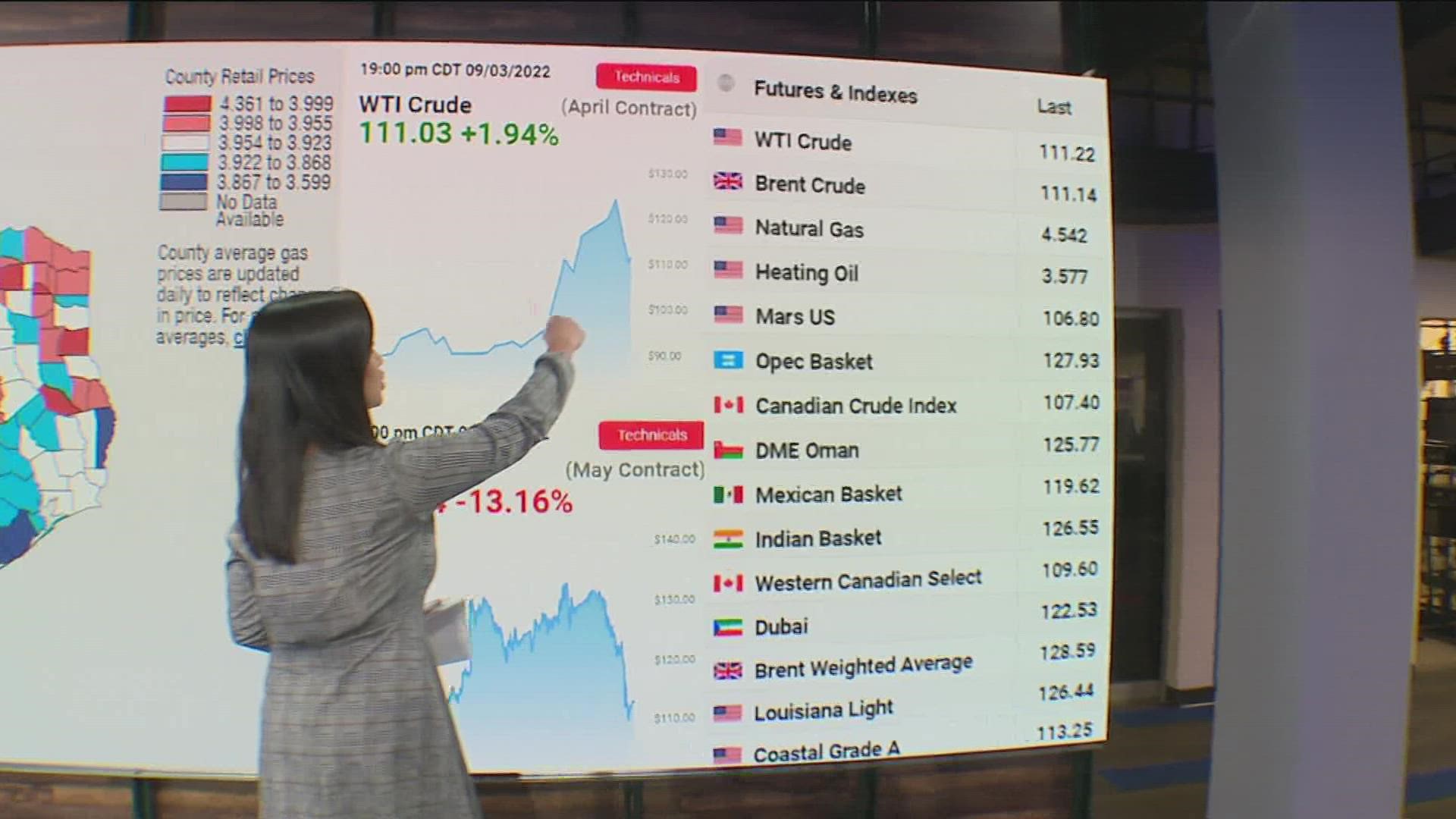With gas prices in record territory and expected to continue rising, people are looking for ways to save a little at the pump. For some, using their vehicle is not just a convenience, it's a necessity -- alternate forms of transportation aren't a viable option.
One simple way to make a difference now is to make sure your current vehicle is properly maintained and that you're driving it in a way to maximize fuel efficiency.
Improper tire inflation can affect your vehicle's miles-per-gallon. The U.S. Department of Energy says that for every 1-PSI drop in pressure, your gas mileage can drop by 0.4%.
The tire itself will likely say what the maximum PSI is, but not what the optimum pressure is for your vehicle. Check your owner's manual or inside the driver's side door panel to find the recommended PSI.
Does that mean over-inflating the tires beyond the factory recommendation will improve gas mileage? Popular Mechanics tried this out in 2009 on a road trip between Phoenix and Los Angeles and found no improvement. The testers speculated that freeway speeds of 70 mph and the drag that put on the car ultimately canceled out the tire inflation difference. It also affected performance and stability of the vehicle.
Also be sure the engine air filter is clean. It can increase fuel efficiency as well as prolong the engine's life, according to Champion Auto Parts.
Here are other tips from the Department of Energy:
- Aggressive driving such as rapid acceleration, braking and speeding can lower gas mileage by 15-30% at highway speeds or 10-40% in the city.
- Gas mileage can decrease rapidly at speeds over 50 mph. The DOE has an interactive tool that shows how much difference going over 50 mph can do in terms of fuel cost for vehicles as far back as those made in 1984. (Click where it says "What is the penalty for my car?)
- To help maintain a speed, use cruise control.
- Rooftop cargo carriers can be a drag on fuel economy -- as much as 25% at freeway speeds and 8% in the city. If you don't need to use it, take it off.
- Also remove excess weight from the vehicle. Every 100 pounds of additional weight can reduce miles per gallon by about 1%.
How you use your vehicle and its accessories in both hot and cold weather can effect your fuel efficiency, according to the Department of Energy. Here are some tips for each: Hot weather | Cold weather

